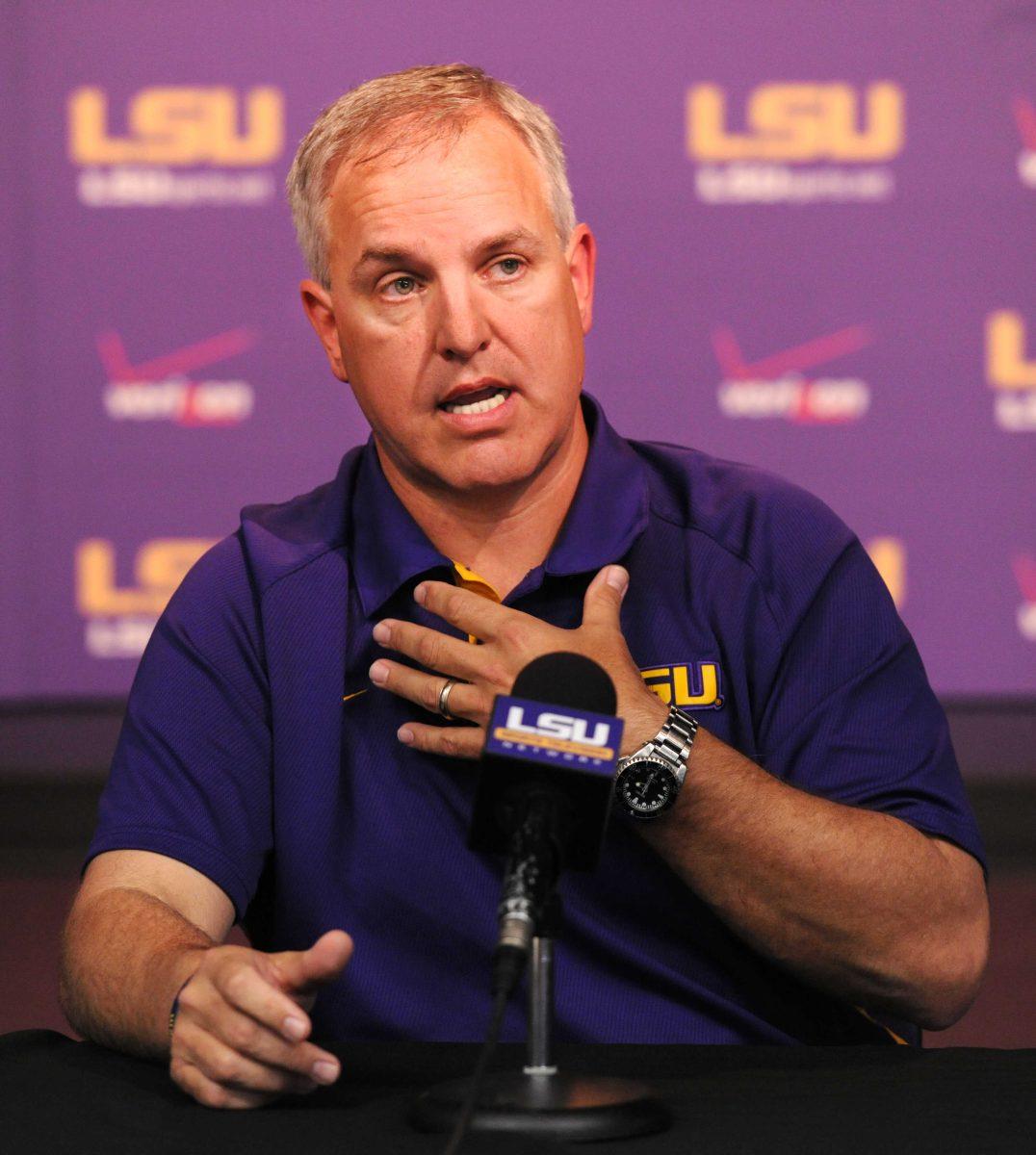Ray Castle was standing near the finish line at the Boston Marathon with his colleague Larry Venis, an athletic trainer from Boston University, under a beautiful sky when the first of two bombs exploded about 50 meters away.
Castle, athletic training program director and associate professor of professional practice at the University, was watching a sea of bobbing heads round the final corner before the finish line only minutes earlier, as he described in a news conference Wednesday.
The first blast sounded like “a cannon ROTC shoots at football games,” Castle said. His initial thought was, “They didn’t tell us about a firework display or anything like that.”
But then smoke began billowing between the city’s buildings. Runners unknowingly continued crossing the finish line. As the smoke cleared, Castle realized people were injured on the ground.
Then the second explosion rang out.
“I remember looking at [Venis]. He looked at me. There was a sense of calm for about a second, and we knew we had to go,” Castle said. “I remember thinking to myself, ‘Oh crap, I’m running into a bomb site.’ I remember being at the finish line, cutting the fence line and everything was so fast forward from there. You walk in and … I’m not going to describe that. I don’t need to relive that.”
Those memories would turn out to be Castle’s only clear recollection of the bombing for the following 30 minutes. Though Castle does foggily remember moving from one patient to the next, assessing their medical needs, he has no recollection of people’s faces — or injuring himself.
Once the victims had been cleared out of the scene, someone said to an adrenaline-fueled Castle, “Are you OK? You’re limping and you’ve got blood on your leg.” Suddenly, Castle’s knee felt like someone had hit it with a hammer. He hadn’t noticed that he had fallen and injured his knee during the commotion.
Castle knew the blast had occurred, but it was then when he started processing the overwhelming amount of information presented in the previous half hour.
“There are bits and pieces of information that I may never be able to recall … If you can tell me what I did, I’ll believe you,” Castle said. “It’s taken a lot from me in the past week to come to grips with that.”
Castle attended the marathon with three athletic training students: first-year student Derek Carter, second-year student Brendan Jacob and third-year student Caitlyn McKinley. They were part of 130 total trainers and students in the 50 to 60 meters between the finish line and the medical tent providing medical assistance to runners who were injured during the marathon and before the bombing.
When Castle asked his students what they did once the bombs went off, they all replied, “We stayed where we were, and we did our job.”
“That’s what I’m proud of. They did their task,” Castle said. “Those athletic training students were rock stars. They helped a critical situation. They’re not fully trained to do that.”
If the athletic training students wouldn’t have been properly attending to the nearly 17,000 runners crossing the finish line, it would have prevented the certified trainers from moving forward to help the victims of the bombing, Castle said.
Because of all the medical personnel on site, the number of lives lost that day was decreased, Castle said. The bombing emphasized to Castle how important it is to have an emergency action plan as a medical personnel because “you never know when something could happen.”
Castle said he understands now that as an athletic trainer and first responder, he must be prepared every day to react to tragedies at sporting events. It’s not about being paranoid but, rather, prepared.
Castle and his students are still healing after witnessing the horrific scenes in Boston and will be for a while to come, he said.
His wife, who he called “the center of his universe,” was vital in surviving that tragic Monday, Castle said.
Castle has also avoided most media coverage on the television and radio stations.
The three athletic training students have returned to class and are in good spirits, Castle said. Additionally, Castle has returned to his job at the University. He’s thankful for the network of support the University has provided, he said.
“I know they’re doing well, and I can’t speak for them, but I know they’re getting better. They’re back in school, and I’m back working, and every day is a great day … I know I’m going to get better and be better as a healthcare provider, as a teacher and as a person … Yesterday was better and today is even better than yesterday.”
“I remember looking at [Venis]. He looked at me. There was a sense of calm for about a second, and we knew we had to go,” Castle said. “I remember thinking to myself, ‘Oh crap, I’m running into a bomb site.’ I remember being at the finish line, cutting the fence line and everything was so fast forward from there. You walk in and . . . I’m not going to describe that. I don’t need to relive that.”





